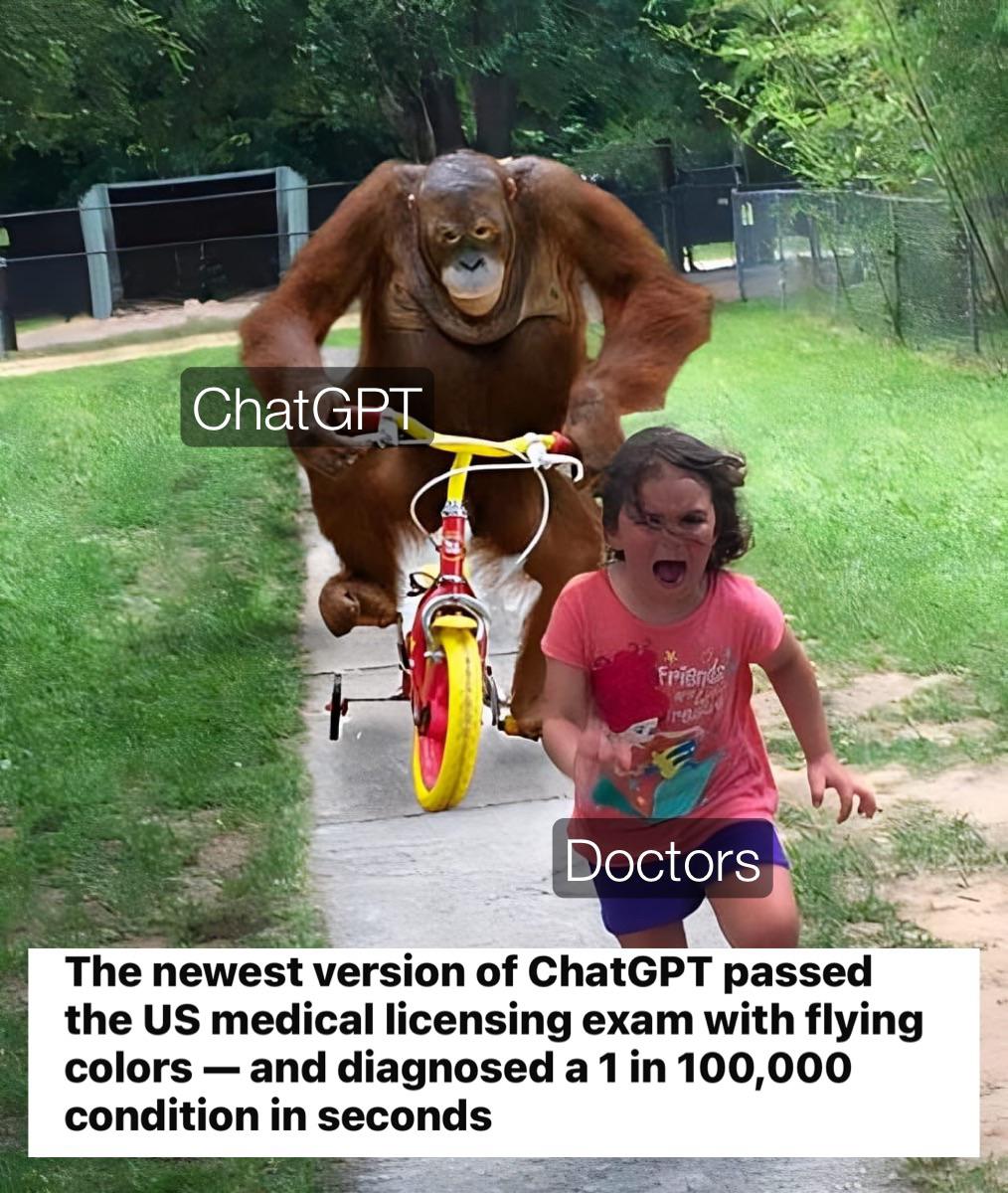this post was submitted on 20 Jun 2023
151 points (88.3% liked)
Memes
46041 readers
3160 users here now
Rules:
- Be civil and nice.
- Try not to excessively repost, as a rule of thumb, wait at least 2 months to do it if you have to.
founded 5 years ago
MODERATORS
you are viewing a single comment's thread
view the rest of the comments
view the rest of the comments

This is a big flashy headline that isn't as big of a deal as it presents itself. AI is still extremely far from assisting doctors, let alone replacing them.
"Diagnosis a 1 in 100,000 condition in seconds" is an absolutely meaningless statement.
What was the condition? Does it present with vague and difficult to assess symptoms or does it have a pathognomonic clinical sign that identifies it immediately, or is it somewhere in between? Did the AI diagnose it correctly, if so was it on the first try? Is it repeatable, could it diagnose it again? How prone is it to false positives, can we be sure it wouldn't diagnose a healthy patient or a patient with a similarly presenting problem? What about false negatives? It caught it this time, do we know how many times it missed it? What about a treatment plan? Does it know how best to treat it and can it work to personalize a treatment to fit that patient specifically with any comorbidities or conflicting medications taken into account? When planning treatments does it stick strictly the drug label or does it factor in published research on dosing?
Same logic I could say my ex girlfriend who watched every season of house correctly diagnosed a 1 in a million case. As you said in short, in medical school there's an old saying "when you hear hoofbeats think horses not zebras". If you are likely to catch the 1 in a million, how many of the 999,999 with common ailments are you likely to accidentally diagnose with something crazy.